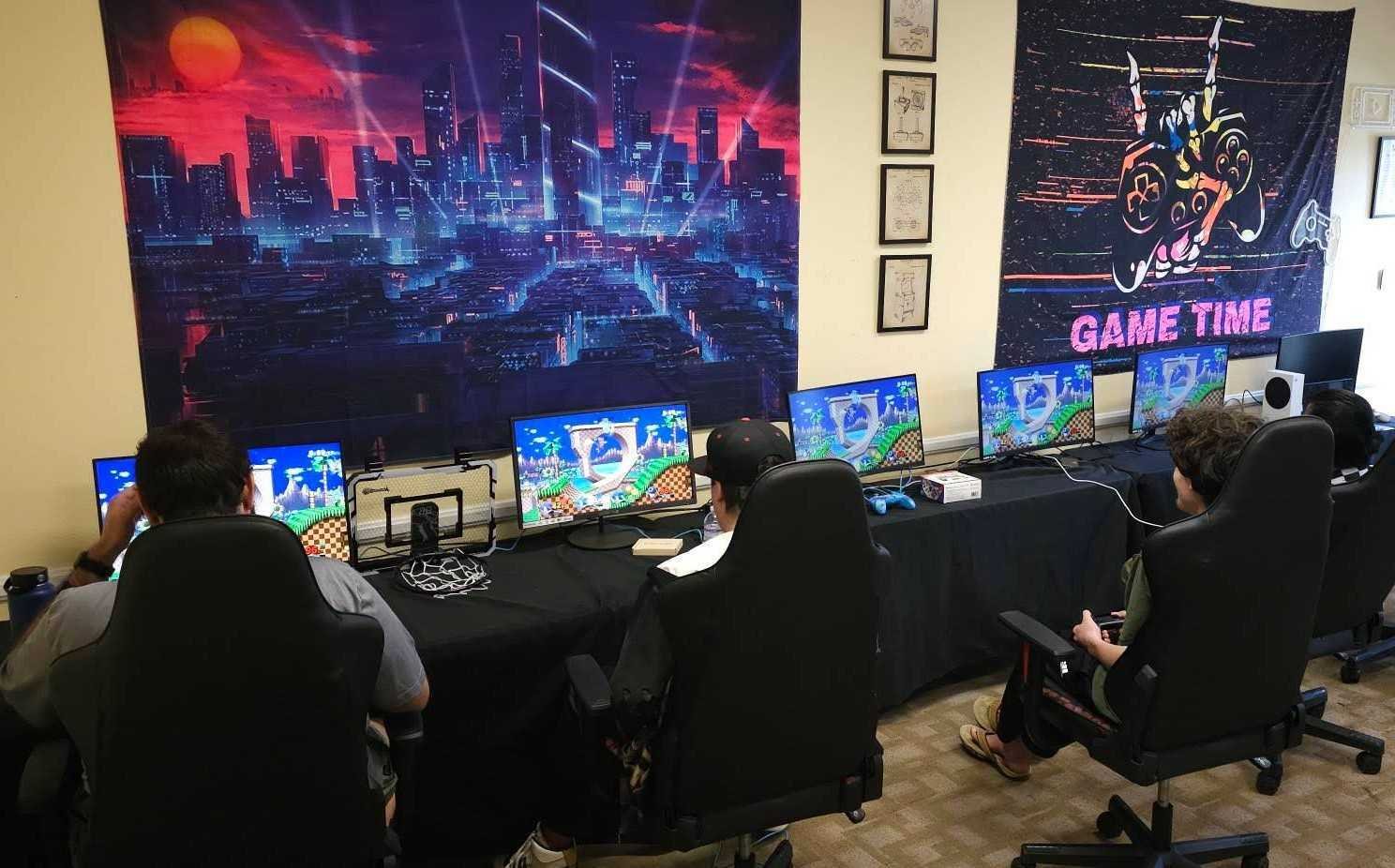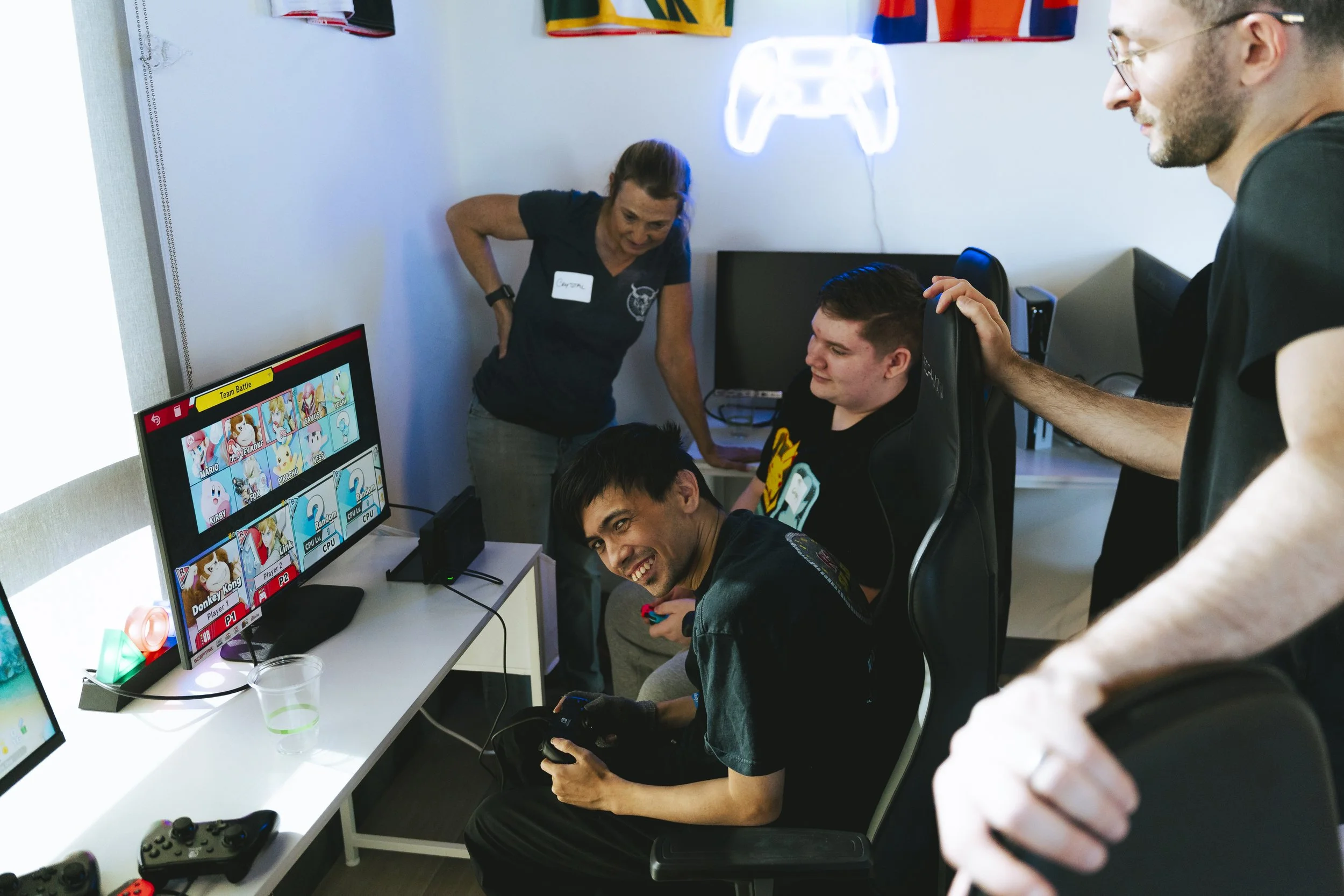Building Confidence in IDD Individuals—And How It Shapes a Brighter Future
Confidence isn’t loud. It’s the steady voice that says, “I can try this.” For many IDD (intellectual + developmental disability) individuals, that voice unlocks community, leadership, and real-world opportunity. And sometimes, it starts with a video game.
A small moment, a big milestone at UESL El Cajon
At our El Cajon Gaming Arena, we recently hosted a casual team tournament for the Nintendo Switch game ARMS. The games were fun—but the most important part wasn’t on the screen, it was what Program Director Van described as a “great showcase of leadership.”
One of our gamers—planned the entire event. He created the brackets, wrote the rules, and helped peers find their stations. The room followed his lead. It was a amazing team-building moment and a significant confidence booster for our lead gamer.
What we saw that day was more than a tournament. It was growth in confidence and a clear showcase of leadership—initiative, communication, and the kind of peer respect that only comes when you’re trusted with responsibility. Those are skills that matter long after the controllers are put away.
Why confidence is a cornerstone for IDD futures
Video games provide a structured, motivating environment to practice those skills—low risk, high engagement, immediate feedback, and lots of chances to try again.
What the research says
A growing body of professional research supports what we see every day:
Video games can foster social, motivational, and emotional benefits, not just cognitive ones—helping players practice cooperation, perseverance, and problem-solving in ways that can transfer beyond the screen. PubMed
In IDD-specific contexts, accessible, participatory gaming can promote empowerment and well-being, especially when individuals help shape the experience (like Tristen designing brackets and rules). Frontiers
Systematic reviews in autism research indicate that computer-based games can improve targeted skills—including social interaction and communication—when thoughtfully designed and coached. BioMed Central
How UESL turns gameplay into confidence
At Unified Esports League (UESL), we use games as tools for growth—with structure, mentorship, and measurable goals.
Role-based leadership opportunities
We invite clients to act as referees, casters, bracket managers, and team captains. Planning a mini-tournament—like our El Cajon gamer did—builds responsibility, clear communication, and calm decision-making under time pressure.Individualized Technology Education Plans (ITEP)
Every client pursues goals that fit their strengths + interests (communication, cooperation, executive function, or creative skills like editing + design). Progress is broken into small, winnable steps that build momentum and confidence.Coaching that names the win
Our coaches narrate what “success” looks like in real time (“You clarified the rules,” “You checked in with a teammate,” “You solved a bracket tie calmly”). When clients can name a win, they can repeat it.Peer-powered community
Team play, co-op challenges, and friendly games and competitions create safe social risk-taking. Clients practice turn-taking, feedback, and shared decision-making—skills that generalize to school, home, and work.Reflect + transfer
After sessions and events, we debrief: What did you do well? What would you try next? Where else could this skill help—at a job site, in class, at home? That reflection step cements confidence as a habit.
The throughline from arena to adulthood
Moments like our El Cajon gamer’s leadership carry forward:
From organizing a bracket → to organizing a shift at work
From mediating a rules question → to leading a team huddle
From announcing match starts clearly → to communicating with customers or classmates
Confidence becomes a practical asset—the foundation for independence, community belonging, and employment.
If you’re a parent or guardian, here’s how to get started
Book a tour of a UESL Gaming + Technology Center (San Diego County + Imperial Valley). See a session in action and meet our coaches.
Ask about an ITEP for your gamer—share their interests + goals so we can co-design their pathway.
Talk to Client Services about enrollment, schedules, and San Diego Regional Center authorization.
We’re here to partner with you—to turn play into progress, and progress into pride.




